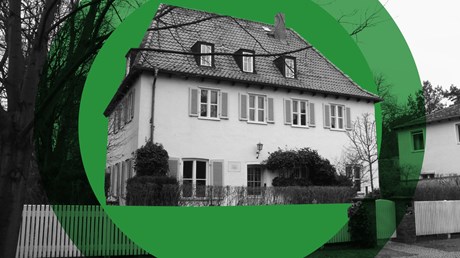How a tour through his private living quarters helps us better understand his public responsibilities—and ours.

Laura Fabrycky and her husband and three children moved to Berlin in 2016. From there, she watched the American presidential election in dismay. “Something seemed to have snapped in our hyperpolarized and tribal politics that could not be easily put back together,” she writes in the introduction to Keys to Bonhoeffer’s Haus: Exploring the World and Wisdom of Dietrich Bonhoeffer. And though her book is unlikely to repair our factious political scene, it may serve to unite and inspire Christians struggling to find a faithful stance within it.
Keys to Bonhoeffer’s Haus is not primarily a biography, although it’s rich with biographical information. Fabrycky knows her stuff. For three years she served as a volunteer tour guide in the Bonhoeffer house, immersing herself in study, interviews, and explorations of the ethics and events surrounding the rise and fall of Nazi Germany.
As Fabrycky leads us through the rooms of Bonhoeffer’s large house, she presents stories from her family’s own attempts to make sense of a foreign land. In one chapter, she moves seamlessly from a survey of Germany’s history and the evolution of the concept of citizenship to her family’s visit to Colonial Williamsburg, where two actors hold a lively debate on religious freedom. She takes us to her daughter’s harsh, mandatory bike-safety training to examine her own instinct to yield to authoritarianism. We see her struggling to love a cranky neighbor who disapproves of her gardening skills.
In all of this, she reminds us of the fuller definition of politics: “civic housekeeping,” by which she means “the hard, often boring work of living a common life” and the practice of neighbor-love ...
from Christianity Today Magazine https://ift.tt/3g56x8U
No comments:
Post a Comment